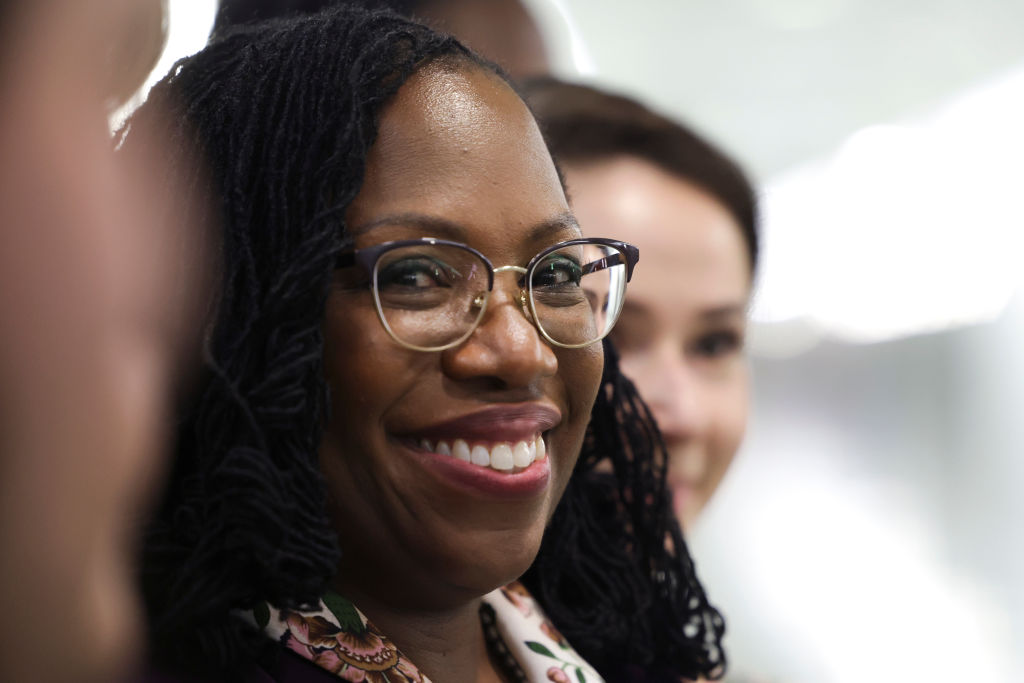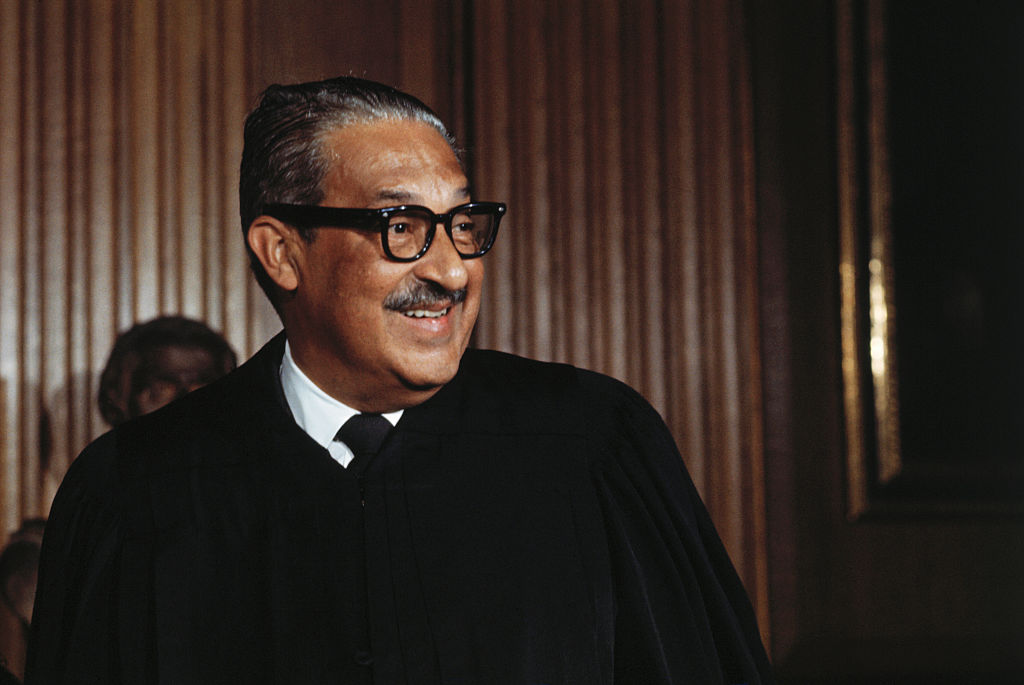
Source: Kevin Dietsch / Getty
Judge Ketanji Brown Jackson’s nomination will move forward for a full Senate vote, bringing her historic confirmation one step closer to completion. After Jackson’s nomination “deadlocked” in the Senate Judiciary Committee, Democrats moved for a vote to discharge her nomination from the committee and to a full confirmation vote.
It passed 53-47, setting the stage for Jackson’s confirmation later in the week. Senate Democrats were joined by Republican Sens. Mitt Romney, Lisa Murkowski and Susan Collins.
U.S. Supreme Court nominee Jackson clears procedural hurdle in Senate https://t.co/e6ajitkD1o pic.twitter.com/LkNzUVoC4X
— Reuters (@Reuters) April 5, 2022
The alleged opposition to Jackson on “ideological grounds” has no more validity than the claims that Republicans would have preferred someone “moderate.”
Supreme Court justices are not required to have a particular ideology. But the theatrics from certain Republicans are more about political theater for the 2022 midterm election than Jackson’s qualifications.
In a statement emailed to NewsOne, Democratic Senatorial Campaign Committee (DSCC) spokesperson Freedom Alexander Murphy challenged a “ridiculous double standard” being applied to Jackson.
“Senate Republicans admit that if they held the majority, the first Black woman and one of the most qualified people nominated to serve on the Supreme Court would not even have received a hearing,” Murphy said. “The stakes for protecting and expanding our Democratic Senate majority with the power to confirm Supreme Court justices could not be more clear.”
For April Frazier Camara, president and CEO of the National Legal Aid and Defender Association, Jackson’s confirmation positively highlights the vital role lawyers representing indigent clients play in the legal system.
“It’s a tremendous milestone, in terms of racial and ethnic diversity, but also in being able to shed light on the valuable role that public defenders play in protecting our constitutional rights and the valuable role that they can play on the court,” Camara explained.
A former member of the DC Public Defender Service and chair of the Black Public Defender Association, Camara, stressed the importance of having a judiciary that is more reflective of the people entering the criminal legal system. She said the combination of Jackson’s lived experience and professional experience as a public defender will be an added benefit to the Court.
“It’s very important for people to understand, especially at this moment where people talk so much about individual rights and our right to freedom and all these ideas that we have in America,” Camara began. “The role that a public defender plays is oftentimes like this silent guardian of those rights.”
Camara said that at times many of the rights outlined in the Constitution fall to public defenders, and other attorneys representing indigent clients, to defend. She also said Jackson’s nomination provided a conversation point for possible pathways to the judiciary for public defenders and legal aid attorneys.
Camara said she and her colleagues began laying the narrative framework to support adding more public defenders to the federal bench in anticipation of the Biden administration.
“We have done a lot to shape the public narrative in the media around trying to explain the role that public defenders play and to push back on this misconception that what we do is not a valuable role in not just society, but in our legal system,” she said.
Madiba Dennie, who serves as counsel with the Brennan Center’s Democracy program, said decisions made by the federal courts, including the Supreme Court, disproportionately impact Black and other groups overrepresented in the criminal legal system.
Judge Jackson’s nomination moves us closer to a day when the Supreme Court better reflects our nation.
Of 115 justices on our nation’s highest court, only three have been people of color and only five have been women.
It is past time for a Black woman to serve. #ConfirmJackson
— The Leadership Conference (@civilrightsorg) April 5, 2022
Of the 115 people to serve on the Supreme Court, only eight justices have been non-white men, and only one has been a woman of color. Being a white male seemed like a prerequisite for the Court until Justice Thurgood Marshall was confirmed in 1967.
“The conversations don’t include us,” Dennie said. “A consequence of that different perspective is it influences the process of judicial deliberations and decision making.”
Expanding on a point she argued in an NBC Think op-ed last month, Dennie acknowledged that adding a Black woman to the Court wasn’t going to magically transform it. But she described the power and importance of well-reasoned dissenting opinions from the justices.
“Dissents have proven useful historically to shape law and policy,” she said. “Whether by the Court returning to a dissent later or Congress looking to the dissent in a case and being like ‘oh, yeah, this is what we wanted to do. Let’s change the law with this dissent in mind.’”
Turning to alleged objections over Jackson’s experience and record, Dennie challenged claims that the nomination was nothing more than “affirmative action.”
“It’s not affirmative action so much as reparative action,” she explained. “Her record should not be in doubt, and it’s a little suspicious when folks challenge her qualifications.”
SEE ALSO:
Judge Ketanji Brown Jackson Isn’t Moderate Enough For GOP Senators But Neither Was Merrick Garland
OP-ED: For Black Women, Racism, Denial and Disrespect Never End; But Still We Rise
window.addEventListener(‘interaction’, function () {
setTimeout(function () {
var s = document.createElement(‘script’), el = document.getElementsByTagName(‘script’)[ 0 ];
s.async = true;
s.src = ‘https://platform.twitter.com/widgets.js’;
el.parentNode.insertBefore(s, el);
}, 1000)
});

